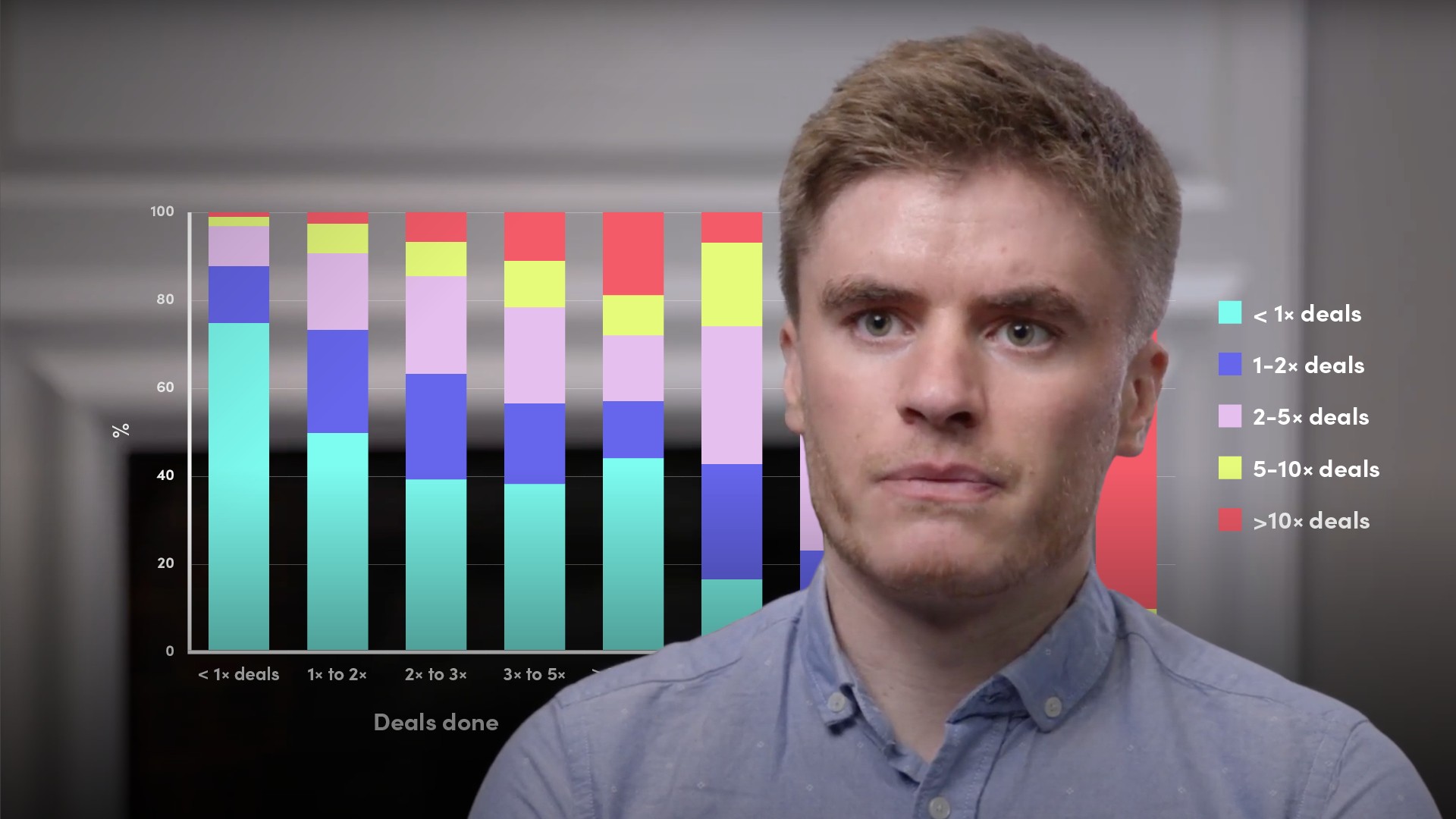
The Economics of a Venture Capital Investment

Harry Davies
Early stage business funding specialist
In this video, Harry firstly outlines the lifecycle of a venture fund, which includes both the commitment and follow-up period. Before moving toward key criteria VCs use when assessing an investment opportunity. Some of which include an assessment of the founders and team, and the market size, dynamics and competitive landscape.
In this video, Harry firstly outlines the lifecycle of a venture fund, which includes both the commitment and follow-up period. Before moving toward key criteria VCs use when assessing an investment opportunity. Some of which include an assessment of the founders and team, and the market size, dynamics and competitive landscape.

The Economics of a Venture Capital Investment
10 mins 59 secs
Key learning objectives:
Identify and explain the lifecycle of a venture fund
Understand how venture capital investments perform generally
Outline the measures and factors VCs consider when funding a company
Overview:
A key requirement for all VCs will be a firm focus on the growth potential of the venture and how that trajectory matches up against the fund’s target returns. A judgement on the team is very important, as it’s the only real asset an early-stage company has. Further to this, VCs assess key metrics such as the market size, dynamics, and the competitive landscape.
What is the commitment period?
Once the fund has closed, a VC fund starts with the commitment period. This is the period within which the GPs are able to make new investments, limited so as to give the invested companies enough time to build and exit a company before returning the capital to LPs. During this period, GPs will be:
- Scouting for new investments
- Deciding upon and making investments
- Supporting those ventures as they scale
What is the follow on period?
This comes after the commitment period and refers to the capital that VCs use to invest again into their portfolio companies as they raise a subsequent round. Each VC will look to own a target share of the company upon an exit or IPO, and thus will be carefully judging how much capital each of their invested companies will need in its journey. A portion of the fund is set aside specifically for these follow-on investments.
What comes after the ‘follow-on period?
Subsequent to this, VCs make no new investments and instead support their existing portfolio companies. During this period, all being well, these investments exit through an acquisition or IPO, returning the capital to the LPs.
What crucial things must founders check before receiving VC investments?
- When a VC last made an investment - If a VC has deployed all of the capital set aside for new investments and they have not raised a new fund, the VC has no capacity to invest
- How frequently they do so
- Understand when that VC last raised a fund
How do venture capital investments perform generally?
Only a small number of the total portfolio of investments will generate nearly all of the return for the fund, with the majority scrapping even or losing money. Over 90% of startups will ultimately fail.
Looking at all US venture investments from 1984-2014, 6% of deals produced 60% of the returns. Half actually lost money. For the best funds, the gross return of the best deals was 64.3x.
What do VCs look for in founders and the early team members?
- Prior experience
- Academic track record
- Technical or domain expertise
- Passion
- Leadership potential
- Balance of skills across the team
- Ability to communicate
- Whether they have an ‘edge’
How do VCs look at an investment?
- VCs will be looking to understand the problem that a startup is solving. Is this a problem that users care about? To what extent? How many of these potential customers are there? And what would be their capacity and willingness to pay?
- Getting a sense of the founder’s solution. Does it work well? Is it easy to use? Is the user experience intuitive? What evidence is there that customers are deriving value from it?
- Understanding the competitive landscape - What makes this company unique? Can it build something that will deliver sustained competitive differentiation that will enable the company to extract and hold a share of the market? What is unique about the proposition or their approach?
- Market size, business model, and unit economics all matter. VCs will seek to fund companies that have potential to deliver exceptional returns and one cannot do that in a small, domestic market
- Timing - It might be more lucrative to target a smaller, but rapidly-growing market

Harry Davies
There are no available Videos from "Harry Davies"

